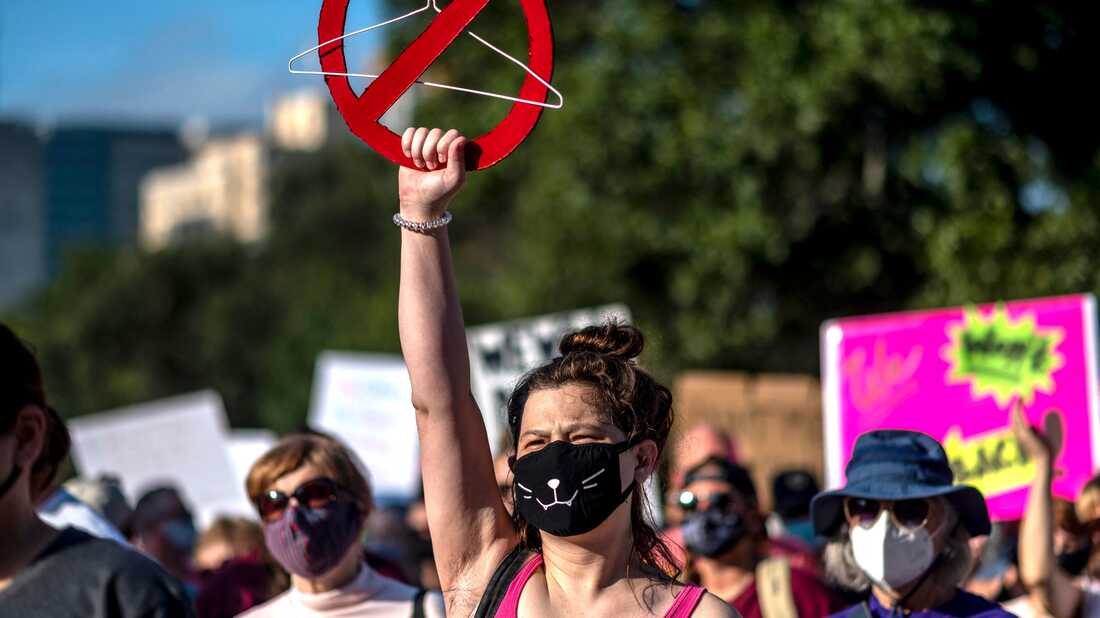
Protesters take part in the Women's March and Rally for Abortion Justice in Austin, Texas, on October 2, 2021. Sergio Flores/AFP via Getty Images hide caption

Protesters take part in the Women's March and Rally for Abortion Justice in Austin, Texas, on October 2, 2021.
Sergio Flores/AFP via Getty ImagesDoctors in Texas have been warning that the state's abortion law known as SB 8 would make it harder for them to treat medical crises and would endanger their patients. Six months in, those predictions appear to be coming true.
NPR correspondent Sarah McCammon reports from central Texas where some women have faced medical issues made more dangerous by SB 8.
Email us at
This episode was produced by Jason Fuller and Lauren Hodges. It was edited by Lee Hale and Ammad Omar. Our executive producer is Cara Tallo.

 Live Radio
Live Radio